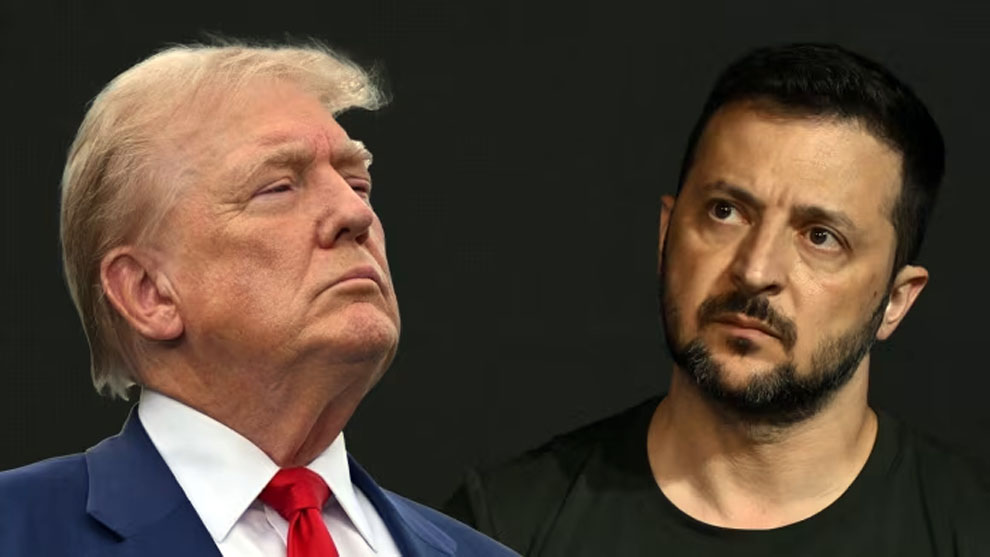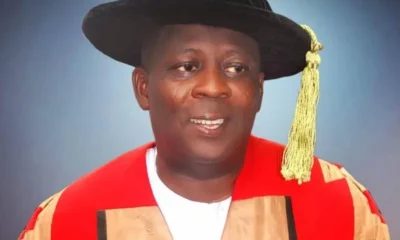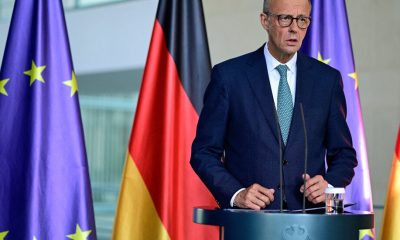International
Qatar suspends role as mediator between Israel, Hamas

Qatar suspends role as mediator between Israel, Hamas
Qatar has suspended its work as a mediator in ceasefire and hostage release talks between Israel and Hamas, officials say.
The country said it would resume its work when Hamas and Israel “show their willingness” to negotiate.
It comes after senior US officials reportedly said Washington would no longer accept the presence of Hamas representatives in Qatar, accusing the Palestinian group of rejecting fresh proposals for an end to the war in Gaza.
Qatar said initial reports it had withdrawn from mediation talks and said that Hamas’s political office in Doha “no longer serves its purpose” were “inaccurate”.
“Qatar notified the parties 10 days ago during the last attempts to reach an agreement, that it would stall its efforts to mediate between Hamas and Israel if an agreement was not reached in that round,” a statement from the Qatari foreign ministry said.
“Qatar will resume those efforts… when the parties show their willingness and seriousness to end the brutal war.”
Hamas has had a base in the Qatari capital since 2012, reportedly at the request of the Obama administration.
Several news agencies reported on Saturday that Qatar had agreed with the US to tell Hamas to close its political office in Doha due to “a refusal to negotiate a deal in good faith”.
But the foreign ministry said the reports were “inaccurate”. The claims have also been denied by Hamas officials.
The small but influential Gulf state is a key US ally in the region. It hosts a major American air base and has handled many delicate political negotiations, including with Iran, the Taliban and Russia.
Alongside the US and Egypt, the Qataris have also played a major role in rounds of so-far unsuccessful talks to broker a ceasefire in the year-long war between Israel and Hamas in Gaza.
But there is growing evidence of a shift in the relationship.
READ ALSO:
- Zamfara govt gets five-day ultimatum to rescue stranded students in Cyprus
- Wisdom, divine intervention required to address economic challenges – Osun monarch
- FRSC urges safe driving as 15 passengers die in Funtua-Sokoto road crash
After the killing of Hamas leader Yahya Sinwar, Hamas held a two-hour mourning tent in Doha in a small hall, a stark contrast to the recent three-day mourning held for Hamas leader Ismail Haniyeh, which was conducted with official state oversight and security.
The latest round of talks in mid-October failed to produce a deal, with Hamas rejecting a short-term ceasefire proposal. The group has always called for a complete end to the war and the full withdrawal of Israeli troops from Gaza.
The Qatari foreign ministry statement said: “Media reports regarding the Hamas office in Doha is inaccurate.”
“The main goal of the office in Qatar is to be a channel of communication… [which] has contributed to achieving a ceasefire in previous stages.”
Israel has also been accused of rejecting deals. Days after being fired earlier this week, former Defence Minister Yoav Gallant accused Israeli Prime Minister Benjamin Netanyahu of rejecting a peace deal against the advice of his security chiefs.
The call for Hamas to be expelled from Qatar appears to be an attempt by the outgoing Biden administration to force some sort of peace deal before the end of his term in January.
Were Hamas to be forced to leave Doha, it is unclear where they would base their political office. Key ally Iran would be an option, although the assassination of former leader Ismail Haniyeh in Tehran in July suggests they may be at risk from Israel if based there. It would also not give them anything close to the same diplomatic channels to the West.
A more likely option would be Turkey. As a Nato member but also a Sunni majority state, it would give the group a base from which to operate in relative safety. Last April President Erdogan hosted then Hamas political chief Ismail Haniyeh and his delegation in Istanbul, where they talked about “what needs to be done to ensure adequate and uninterrupted delivery of humanitarian aid to Gaza, and a fair and lasting peace process in the region”.
The move would also most likely be welcomed by Ankara, which has often sought to position itself as a broker between east and west.
Key Hamas figures such as Osama Hamdan, Taher al-Nunu, and others frequently featured on news outlets have been staying in Istanbul for over a month.
Their extended presence in Turkey marks a departure from past visits, which were typically limited to brief stays.
It is thought the personal safety of Hamas leadership is now a major concern for the group, which saw two leaders killed in less than four months. As well as Haniyeh’s death in July, in October Israel killed Yahya Sinwar, the mastermind behind the 7 October Hamas attack on southern Israel.
According to the European Council of Foreign Relations, “Hamas has adopted a temporary model of collective leadership to mitigate the effect of future Israeli assassinations”.
H A Hellyer, a senior associate fellow at the Royal United Services Institute (Rusi), told the BBC that nowhere “will give them protection from Israeli assassination attempts in the same way that being in Doha, where America has its largest military base in the region, did”.
The latest move comes as US officials appear increasingly frustrated with the approach the Israeli government has taken to ending the war. In October, the US Secretaries of State and Defense said if Israel did not allow more humanitarian aid into the territory by 12 November, they would face unspecified policy “implications”.
Last weekend a number of UN officials warned the situation in northern Gaza was “apocalyptic”. On Saturday the independent Famine Review Committee said there was a “strong likelihood that famine is imminent in areas”.
The relationship between President Joe Biden and Netanyahu has deteriorated over the course of the war in Gaza, with increasing pressure from Washington to improve the humanitarian situation for the Palestinians and find some sort of negotiated settlement.
But, according to Dr Hellyer, US attempts at negotiation have been fatally flawed.
“By setting red lines and allowing Netanyahu to cross them without consequence, the Biden administration effectively encouraged further impunity. I don’t think any of this will change in the next 10 weeks,” he said.
Any overtures have been repeatedly rejected by Netanyahu and his right-wing coalition, who will now also feel emboldened by the prospect of an incoming Donald Trump presidency.
While exactly what approach Trump will take to the region remains uncertain, he is thought to be more likely to allow Israel to act on its terms.
He has previously said Israel should “finish what they started” in Gaza. During his last term in the White House, he took a number of steps deemed highly favourable to Israel, including moving the US embassy to Jerusalem.
It has also been reported, however, that Trump has told Netanyahu that he wants to see an end to the fighting by the time he takes office.
Either way, it seems likely that the current US administration will have less influence over the government in Jerusalem.
They may therefore believe the best way to force some sort of deal is to apply pressure on Hamas. Whether it pays off may depend on whether Qatar, so long a reliable ally, decides to go along with it.
Qatar suspends role as mediator between Israel, Hamas
BBC
International
Indonesia Flood Disaster: Death Toll Exceeds 900 as Search for Hundreds Continues

Indonesia Flood Disaster: Death Toll Exceeds 900 as Search for Hundreds Continues
The death toll from the catastrophic Indonesia floods has risen to more than 900, with hundreds still missing as rescuers struggle to reach communities cut off by last week’s rare and powerful cyclone over the Malaca Strait. The storm unleashed torrential rain and severe landslides, destroying over 100,000 homes across multiple regions.
Authorities say relief efforts remain extremely challenging, with aid being air-dropped into isolated areas where roads and bridges have been washed away. The deadly floods form part of a chain of recent extreme weather disasters across Asia, bringing the combined regional death toll — including in Sri Lanka, Thailand, Malaysia, and Vietnam — close to 2,000.
READ ALSO:
- 25 Dead in Goa Nightclub Fire After Suspected Gas Explosion in Arpora
- Doctor Charged With Sexually Assaulting 38 Patients in West Midlands Hospitals
- Shettima Inaugurates Multi-Million Naira Juma’at Mosque in Gumel
In Aceh Tamiang, among the worst-hit districts, survivors described entire villages being swept away by surging waters. Residents of Lintang Bawah Village told the BBC Indonesian service that many families survived only by taking refuge on rooftops.
Fitriana, a survivor, recounted how some villagers endured three days without food or water as they clung to their homes: “Ninety percent of the houses in our village were destroyed,” she said, leaving 300 families displaced.
Another survivor described fleeing twice — first from his own home as floodwaters reached the second floor, and then again from a nearby village inundated overnight:
“While we were sleeping, water soaked the mattresses. There was no higher ground. We survived by climbing to the second floor of my daughter-in-law’s house.”
Indonesian authorities continue emergency operations as hopes fade for those still unaccounted for. The government has pledged expanded humanitarian support as the scale of the disaster becomes clearer.
Indonesia Flood Disaster: Death Toll Exceeds 900 as Search for Hundreds Continues
BBC
International
Russia Intensifies Airstrikes on Ukraine as Zelensky, Trump Envoys Advance Peace Talks

Russia Intensifies Airstrikes on Ukraine as Zelensky, Trump Envoys Advance Peace Talks
Russia has intensified its overnight aerial attacks on Ukraine, striking multiple regions just hours after President Volodymyr Zelensky described his discussions with Donald Trump’s negotiating team as “very constructive.” The renewed assaults come amid a fresh push for a US-led peace framework aimed at ending the nearly three-year-old war.
The mayor of Kremenchuk, a key industrial city in central Ukraine, confirmed the area suffered a “massive combined strike”, damaging critical infrastructure and leaving residents without water, electricity, and heat. No fatalities have been reported so far.
Russia’s defence ministry claimed it intercepted 77 Ukrainian drones across several locations during the same period, underscoring the ongoing intensity of the conflict despite diplomatic efforts.
Zelensky said he is “determined” to continue working closely with the US after three days of detailed negotiations in Miami involving Trump’s envoy Steve Witkoff and the former US president’s son-in-law Jared Kushner. Talks focused heavily on ensuring Russia’s compliance with any future peace agreement.
READ ALSO:
- 25 Dead in Goa Nightclub Fire After Suspected Gas Explosion in Arpora
- Doctor Charged With Sexually Assaulting 38 Patients in West Midlands Hospitals
- Shettima Inaugurates Multi-Million Naira Juma’at Mosque in Gumel
The US has been mediating a multi-point peace plan, though progress remains limited as Kyiv, Moscow, and European allies differ on key proposals. European leaders have pushed for additional security guarantees for Ukraine, including the possibility of a multinational peacekeeping force, an idea Russia has rejected.
French President Emmanuel Macron, UK Prime Minister Sir Keir Starmer, German Chancellor Friedrich Merz, and Zelensky are set to meet in London on Monday to coordinate Europe’s position on the evolving peace framework. Macron reiterated France’s commitment to achieving de-escalation and a ceasefire.
Meanwhile, the US and Ukraine have jointly urged Moscow to demonstrate “a serious commitment to long-term peace.” The appeal came after Witkoff returned from Kremlin talks with Vladimir Putin, which ended without a breakthrough.
Ukraine’s new chief negotiator Rustem Umerov said he and Witkoff have “agreed on the framework of security arrangements” and discussed deterrence measures needed to secure a durable peace.
The latest wave of Russian airstrikes — following a wider barrage a day earlier condemned by European leaders — underscores the gulf between diplomatic negotiations and realities on the ground as the war grinds on.
Russia Intensifies Airstrikes on Ukraine as Zelensky, Trump Envoys Advance Peace Talks
BBC
International
25 Dead in Goa Nightclub Fire After Suspected Gas Explosion in Arpora

25 Dead in Goa Nightclub Fire After Suspected Gas Explosion in Arpora
A devastating inferno at a popular nightclub in Goa has left 25 people dead, with authorities confirming that most of the victims were employees of the establishment located in Arpora, North Goa. Several tourists are also among the casualties.
Officials say the blaze, which erupted around midnight on Saturday, was triggered by a suspected gas cylinder explosion in the club’s kitchen. The fire quickly tore through the premises, leading to scenes of panic in the bustling nightlife district.
Goa Director General of Police Alok Kumar confirmed that the fire was concentrated on the ground-floor kitchen area and has since been brought under control. Most bodies were recovered near the kitchen, reinforcing concerns that staff members bore the brunt of the tragedy.
Goa Chief Minister Pramod Sawant stated that three victims died from burn injuries, while others succumbed to suffocation. He also revealed that “three to four” tourists had been confirmed dead, though their identities and nationalities remain unknown.
According to The Indian Express, the incident occurred at Birch by Romeo Lane, a well-known club near Baga Beach, one of Goa’s busiest tourist hubs. The area is lined with nightlife venues that typically draw large crowds on weekends.
READ ALSO:
- Doctor Charged With Sexually Assaulting 38 Patients in West Midlands Hospitals
- Shettima Inaugurates Multi-Million Naira Juma’at Mosque in Gumel
- Police Launch Special Enforcement Team to Enforce Tinubu’s Ban on VIP Escorts
Witnesses described chaotic moments as screams filled the air moments after the explosion. One bystander told the BBC: “It was a normal Saturday night. Suddenly there were screams, and then we realized a massive fire had broken out. The scenes were horrific.”
Fire crews worked through the night, combing through charred debris to determine the full extent of damage and finalize victim identification. The remains of burnt furniture and décor were visible at the site on Sunday morning, now sealed off by security officials.
Victims’ bodies have been transferred to Goa Medical College in Panaji, where identification is underway before notifying families.
Chief Minister Sawant has ordered a formal inquiry into the cause of the blaze, promising that “those found responsible will face the most stringent action.” He expressed “deep grief” and extended condolences to affected families.
Indian Prime Minister Narendra Modi described the incident as “deeply saddening”.
Goa, a former Portuguese colony famed for its beaches, nightlife, and resorts, attracts millions of visitors annually. Government figures show 5.5 million tourists visited the state in the first half of the year, including 270,000 international travelers.
The tragedy adds to a growing list of fatal fires in entertainment venues across India, including recent incidents in Hyderabad, Kolkata, and Gujarat, often linked to poor safety standards and overcrowding.
25 Dead in Goa Nightclub Fire After Suspected Gas Explosion in Arpora
BBC
-

 Sports2 days ago
Sports2 days ago2026 FIFA World Cup Draw: England Draw Croatia as Brazil Face Morocco in Tournament Opener
-

 News2 days ago
News2 days agoAkpabio sues Natasha for ₦200bn over sexual harassment allegations
-

 metro3 days ago
metro3 days agoTinubu Govt Eliminates More Terrorists Than Previous Administrations — Fani-Kayode
-

 Politics2 days ago
Politics2 days agoOsogbo Youth Group Condemns APC Over Disqualification of Adegoke SAN
-

 metro2 days ago
metro2 days agoNigerian woman sparks outrage for refusing chemotherapy despite ₦30 million donations over religious Beliefs
-

 metro2 days ago
metro2 days agoFour Teenagers Killed in Banki Explosion as Borno Police Probe Deadly IED Blast
-

 Opinion3 days ago
Opinion3 days agoSiyan Oyeweso: Lessons in virtue and vanity
-

 metro1 day ago
metro1 day agoAkpabio denies filing new ₦200bn lawsuit against Natasha















